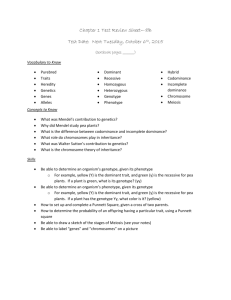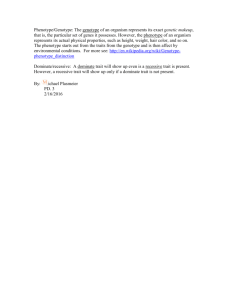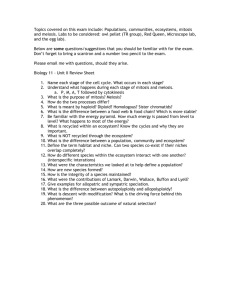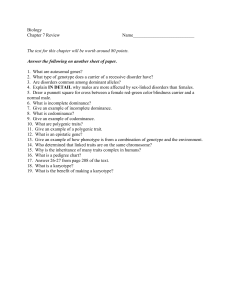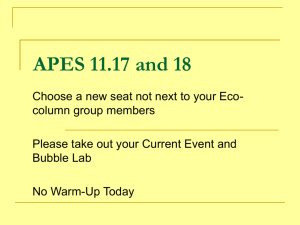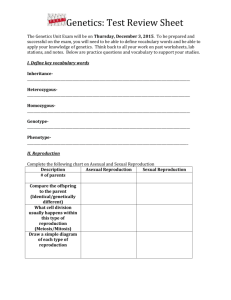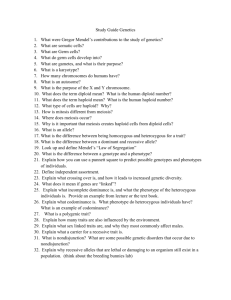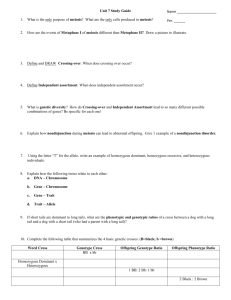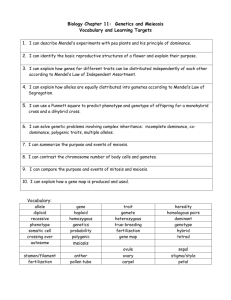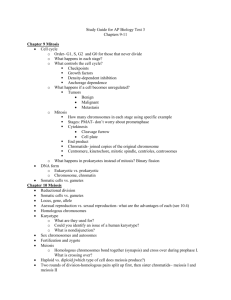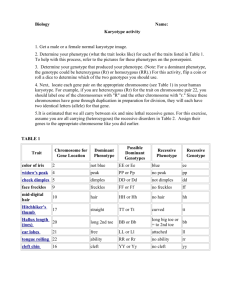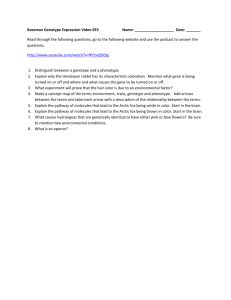Name Biology 2015 Final Exam Review Guide Key Terms Artificial
advertisement
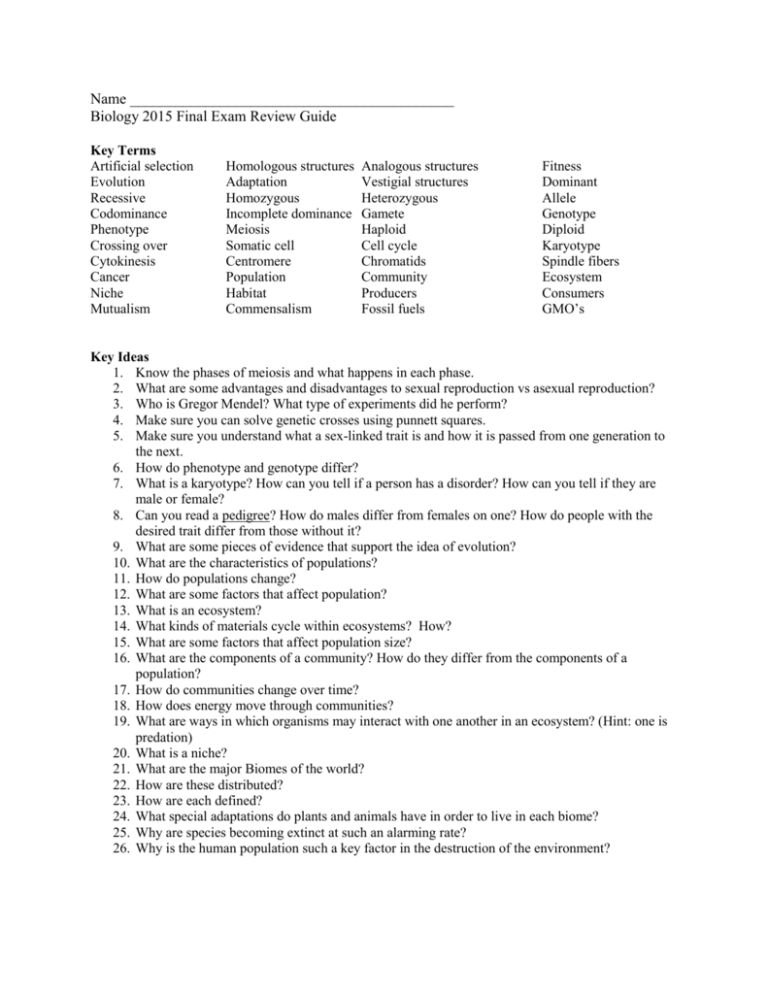
Name ___________________________________________ Biology 2015 Final Exam Review Guide Key Terms Artificial selection Evolution Recessive Codominance Phenotype Crossing over Cytokinesis Cancer Niche Mutualism Homologous structures Adaptation Homozygous Incomplete dominance Meiosis Somatic cell Centromere Population Habitat Commensalism Analogous structures Vestigial structures Heterozygous Gamete Haploid Cell cycle Chromatids Community Producers Fossil fuels Fitness Dominant Allele Genotype Diploid Karyotype Spindle fibers Ecosystem Consumers GMO’s Key Ideas 1. Know the phases of meiosis and what happens in each phase. 2. What are some advantages and disadvantages to sexual reproduction vs asexual reproduction? 3. Who is Gregor Mendel? What type of experiments did he perform? 4. Make sure you can solve genetic crosses using punnett squares. 5. Make sure you understand what a sex-linked trait is and how it is passed from one generation to the next. 6. How do phenotype and genotype differ? 7. What is a karyotype? How can you tell if a person has a disorder? How can you tell if they are male or female? 8. Can you read a pedigree? How do males differ from females on one? How do people with the desired trait differ from those without it? 9. What are some pieces of evidence that support the idea of evolution? 10. What are the characteristics of populations? 11. How do populations change? 12. What are some factors that affect population? 13. What is an ecosystem? 14. What kinds of materials cycle within ecosystems? How? 15. What are some factors that affect population size? 16. What are the components of a community? How do they differ from the components of a population? 17. How do communities change over time? 18. How does energy move through communities? 19. What are ways in which organisms may interact with one another in an ecosystem? (Hint: one is predation) 20. What is a niche? 21. What are the major Biomes of the world? 22. How are these distributed? 23. How are each defined? 24. What special adaptations do plants and animals have in order to live in each biome? 25. Why are species becoming extinct at such an alarming rate? 26. Why is the human population such a key factor in the destruction of the environment?
